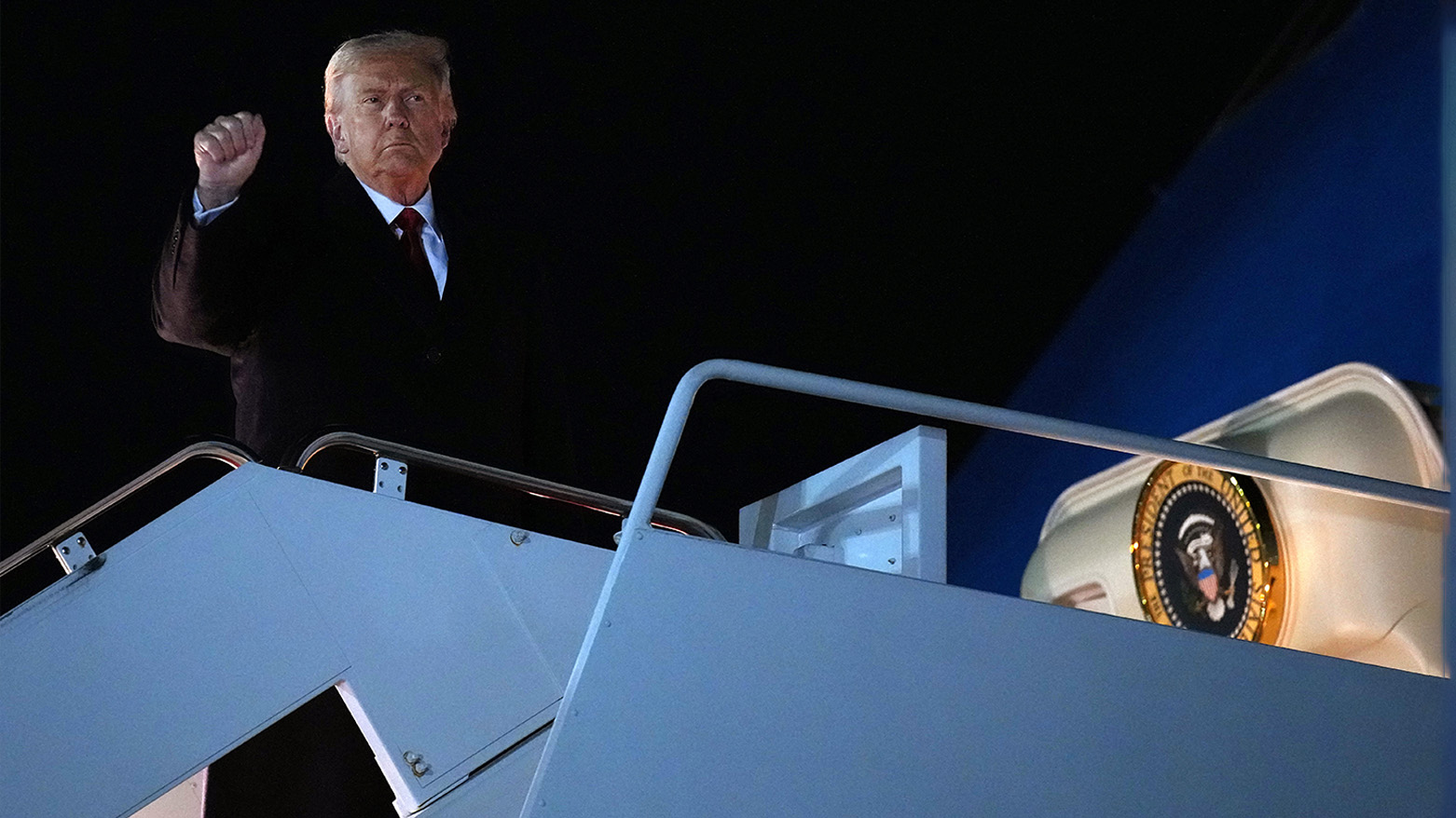Trump Begins Asia Tour with Trade Breakthroughs Ahead of Pivotal China Meeting
President Trump began his Asia tour announcing trade agreements with Cambodia and Thailand, a minerals deal with Malaysia, and progress toward a China trade deal that would avert planned November tariffs.

ERBIL (Kurdistan24) – U.S. President Donald Trump began his highly anticipated Asia tour on Sunday, striking a confident tone as he arrived in Malaysia and announced a series of diplomatic and economic breakthroughs, including new trade agreements with Cambodia and Thailand, a minerals deal with Malaysia, and what he described as a “very positive framework” for an impending trade accord with China.
The U.S. leader’s Asia swing, which will also take him to Japan and South Korea, is seen as a defining moment in his effort to reshape American trade policy in the region and potentially end the tariff-fueled trade war with China.
Trump’s first major accomplishment came on the sidelines of the ASEAN summit, where he co-signed a historic ceasefire agreement between Thailand and Cambodia following their deadliest border clashes in decades.
In parallel, Trump unveiled two economic pacts: a trade agreement with Cambodia and a critical minerals deal with Thailand, designed to secure supply chains of rare elements vital to advanced technology manufacturing.
“These agreements reflect America’s renewed engagement in Southeast Asia and our commitment to prosperity through partnership,” Trump said before departing Kuala Lumpur.
At the heart of Trump’s tour lies the upcoming summit with Chinese President Xi Jinping in South Korea, where both sides hope to finalize a deal to de-escalate the U.S.-China trade war.
Speaking to reporters aboard Air Force One, Trump said he was confident of a “great meeting” with Xi, adding, “I think we’re going to make a deal.”
U.S. Treasury Secretary Scott Bessent, who concluded two days of preparatory talks in Kuala Lumpur with Chinese Vice Premier He Lifeng, confirmed that “tariffs will be averted.”
“The discussions set the stage for the leaders’ meeting in a very positive framework,” Bessent said, adding that China had agreed to delay restrictions on rare earth exports for a year while resuming large-scale soybean purchases from American farmers—a key political and economic constituency for Trump.
Chinese Vice Commerce Minister Li Chenggang also described the talks as having reached a “preliminary consensus,” signaling a thaw in the tense trade standoff that has rattled global markets.
Bessent later told ABC News that the agreement effectively removes the threat of a 100% tariff hike scheduled for November 1, describing it as a “tentative but meaningful breakthrough.”
During a refueling stop en route to Malaysia, Trump also met Qatari officials, key guarantors of the Gaza ceasefire deal he recently spearheaded, and later spoke with Brazilian President Luiz Inácio Lula da Silva, signaling a desire to reset ties with the leftist leader.
“I think we’ll be able to do some pretty good deals,” Trump told reporters after his meeting with Lula.
From Malaysia, Trump will travel to Japan, where he is expected to meet Prime Minister Sanae Takaichi, who has made strengthening ties with Washington her top foreign policy goal.
The U.S. president praised Takaichi as “a leader continuing the legacy of Shinzo Abe,” noting his close friendship with the late Japanese premier. Japan, which has largely avoided the harsher tariffs imposed on other U.S. partners, is expected to reaffirm its strategic alliance with Washington during the visit.
The highlight of Trump’s trip will come in Busan, South Korea, where he is set to meet both South Korean President Lee Jae Myung and Chinese President Xi Jinping during the Asia-Pacific Economic Cooperation (APEC) summit later this week.
South Korea’s Reunification Minister recently noted a “considerable chance” that Trump may also meet North Korean leader Kim Jong Un while on the peninsula—their first encounter since 2019.
“I would [meet him],” Trump said when asked about the possibility. “If you want to put out the word, I’m open to it. I had a great relationship with him.”
Kim, for his part, has indicated openness to renewed dialogue—provided Washington drops its demand that Pyongyang give up its nuclear arsenal.
As global markets await the outcome of Trump’s summit with Xi, observers say the trip could mark a turning point in international trade relations and regional diplomacy, potentially reshaping alliances across Asia.
Whether Trump’s optimism translates into a lasting accord remains to be seen—but as the president himself declared in Kuala Lumpur, “We’re back in Asia, and we’re here to make deals.”